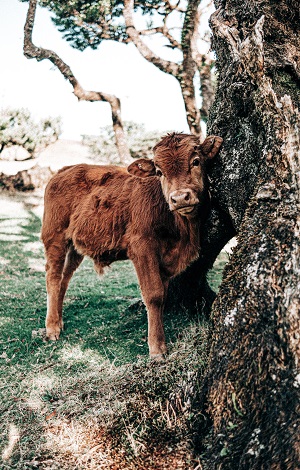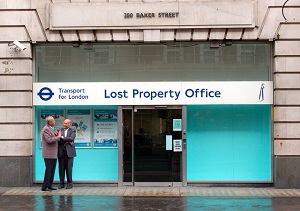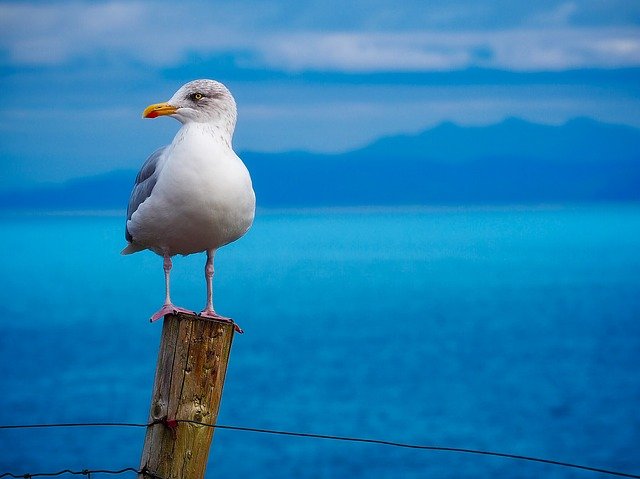You have no items in your cart. Want to get some nice things?
Go shopping
Dedicated to the author’s uncle, Matish Çefa
There were fourteen inmates in that cell, when old Dhimitraq arrived. Some playing dice, some talking literature and art, some killing fleas or pissing in their pots. Some praying; one learning Esperanto.
Dhimitraq’s late arrival aroused interest. He had been shipped off from another jail – for “staring angrily” at a portrait of the Great Leader, during an interview in the warden’s office.
“What are you in for, uncle?” asked the bony men. “What are you doing in the worst prison in Albania?”
His crumpled face gave few signs of life, but his gaze felt intact.
“My calf denounced me,” he replied.
“What do you mean ‘your calf’?”
“My calf,” repeated the old timer. “A calf is a young bullock–”
“We know what it is. It’s the ‘denunciation’ part we don’t understand.”
“Well, he did. He was my child, my friend, and he denounced me, because…”
*
Dhimitraq had been a dairy farmer before his arrest; a simple man, who had tried hard to be good to his family and community. His family consisted of his loyal wife Vasilika, and the several animals that lived downstairs, in the same two-storey house as the humans. Dhimitraq did not discriminate; he loved the animals, as he would’ve loved his children, had the Good God blessed him with some. He cared for them, raised them, washed and fed them, and in return they gave him plenty: milk, meat, wool, workforce, transport, love. He loved his donkey, Ramo, he loved his goat, Pezevengi, he loved his cow, Mama Milka, but most of all, he loved his calf, whom he had named Murroi (Brownie). He was a beautiful brown calf of Busha breed, a well-known breed in the Balkans. Dhimitraq had seen Murroi come to life: had raised him, educated him, nursed him when he’d suffered from rinderpest. Murroi had grown handsome and strong. He worked well, loved his master, was very promising with regards to future breeding. Every evening, before going to bed, Dhimitraq, like a good father, would go downstairs and fondle his animals, one by one; speak to them for a few minutes, before bidding them a warm, sweet, good night.
Dhimitraq cared little for wars, politics, governments. Had seen many of them come, and many of them go.
But then, in 1946, something happened that had never happened before: the collectivisation. Men and women in uniform, with five-pointed stars on their hats and shoulders, turned up and tried to explain the Agrarian Reform to Dhimitraq; the fairness and the benefits of it all, the sacrifice needed for it to succeed, the time required for it to bear fruit – real fruit; and so on. Dhimitraq did not understand very well – especially the part about the benefits – but he was all for it. He felt sure people in power knew what they are doing. They were, after all, the liberators. They had liberated people, from the evils of oppression, and now they were liberating animals, so that they could fulfil their true potential.
The matter became more complex when they asked him to give up Murroi for the cooperative. It is like asking a father, he said, to give up a son. The regional commissar had the answer ready: how many fathers, he said, have given up their sons, and daughters, during the National-Liberation War? I tell you exactly: 28,000. Dhimitraq reflected awhile, on the number and the word “sacrifice”. He could not find the words to counter such a good and learned man like the commissar. Still, surrendering Murroi seemed – beyond the realms of the graspable.
“Couldn’t you take me instead,” he pleaded. “I can work hard – like a horse; I will pull the ploughing cart myself, if need be.”
“You will have that chance,” the commissar said, “to prove your loyalty and good will; for the moment The People need your cattle. And you must give it, of your own free will.”
Finally, Dhimitraq caved in.
“Be it as you see fit,” he said, as the noise of loading submachineguns caught his ear.
They left.
Dhimitraq grew sad and melancholic.
What is wrong, asked his good wife Vasilika one day (while combing her oily hair in front of the mirror) but quickly bit her lip in regret. She knew the answer only too well.
Still, it was alright for a while. Dhimitraq had Ramo, his ancient donkey, and Sylesh, his loyal dog, the only two animals he had been allowed to keep for now, and they consoled him.
He worked hard in the new cooperative, yet the harder he worked, the less he got in return. Dairy products, like money and good manners, kept getting scarcer. And although he could not make head or tail of any of it, he kept his head down and his work up. They must know what they’re doing, he kept telling himself; they are, after all, the liberators.
A year went by. Then another. Wheat bread and olive oil became delicacies. Yet Dhimitraq never lost hope in the days of plenty to come.
One day, as he rode his donkey home, after cutting some branches in the beech forest, he noticed, outside a barn, which belonged to the cooperative, a familiar-looking animal.
Could it be him? My Murroi? His heart began to race.
He spurred his old donkey and approached.
There was little doubt in his mind now; tied up, by some haystacks – Murroi.
He was all skin and bone, barely recognisable. His brown body covered in dirt, ripped and bleeding all over. Front feet nastily wounded; teeth black and corroded. He hung his head in a pained pose, and his eyes registered sadness, deep as the Ionian Sea. But even then, when he noticed his old master approaching, Murroi recognised him – and reacted.
Dhimitraq climbed off his donkey and hugged Murroi.
Murroi mooed achingly and licked his face, and that broke Dhimitraq’s heart into pieces; he began to weep. He rubbed the animal’s scrawny neck, kissed his scratched forehead, and talked to him, as he had done back in the day. What have they done to you, my dear boy. Your pain is my pain, he said to him, and your grief my grief. And whatever they’ve done to you, they’ve done it unto me. May I be buried alive for having abandoned you. I should’ve fought them, with all my strength. But I will make up for my shameful deed; I will come at nightfall and take you away from these devils. May lightning strike me dead if I do not keep my word.
Dhimitraq returned home and waited anxiously for nightfall. When time came, he took his oil lamp, his axe, and headed for the cooperative barn. He had hatched a plan, about how and where to hide and cure Murroi–
“Halt!” shouted a male voice in the dark.
Out of the shadows emerged a local police officer, escorted by two female soldiers armed with Kalashnikovs. Dhimitraq was stunned but did not lose his nerve. He could not possibly be arrested for strolling in the dark.
At the local police station, they told him they knew ‘everything’.
Everything?
“You have spoken against collectivisation,” the chief police told him. “Called cooperative officials ‘devils’ (imagine!), accused them of cruelty against animals.”
Dhimitraq was completely struck with amazement and did not answer; could not.
“You planned to take your calf back,” said the uniformed man, “Steal it from its rightful place and owners. The People are now his rightful owners, not you.”
In court, Dhimitraq was read his charges: obstructing the Agrarian Reform, attempted theft, defending private ownership…
Eight years.
“Well,” said Tish, who was doing twenty for agitprop, attempting to escape and harbouring dangerous elements. “Your calf has not denounced you. You can put your mind at rest.”
Dhimitraq rubbed the back of his neck.
“It was him,” he said, in a tragic tone, “my Murroi. Because I abandoned him, and failed to protect him.”
“You could not do otherwise,” said Father Leon, an old monk and muralist, in an attempt to console.
“I gave my child away without a fight. I don’t blame him for turning against me.”
Zef, grave-looking man with untamed hair, offered the old timer a cigarette and the latter accepted it.
“He did not turn against you,” said Zef, who had been a police operative, before being arrested for ‘attempting to overthrow the people’s government’.
“Then who did? There was no one there.”
“Of course there was.”
“Even if there was,” insisted Dhimitraq, who was very much in earnest, “they would’ve been at a distance, could’ve never heard what I said to Murroi.”
“You said there were haystacks there,” said Tish, while miraculously dividing a small sugar cube into six pieces.
“Yes, there were. Three of them.”
“There you go; there’s your answer. Somebody was hidden there. Three of them, maybe.”
The old man shook his bristly head.
“I would’ve heard them move. Ramo would’ve heard them move. He had the sharpest ears in the world.”
“Who’s Ramo?” asked Tish.
“My donkey.”
“See, maybe the names are the issue here. Maybe your animals weren’t all that happy with the names you gave them.”
“I tried my best.”
“Well, you should have consulted others, maybe. What did you say your dog was called?”
“Sylesh.”
“There you go. I think we’ve identified the problem here. Maybe Murroi was not ecstatic about the name you gave him, that is why he informed on you.”
Father Leon raised his hand up as if to rebuke the jokers.
“I called him Murroi for a reason, like I called my dog Sylesh for a reason. My calf was brown, mainly, light brown – hence the name. My dog shaggy-eyed–”
“Well,” said Tish, “maybe he did not like that name; did not like the sound of it – when you called him.”
“What should I have called him?”
“I don’t know. Mario – is one example.”
“Mario? What are you talking about?”
Tish turned his head slightly and noticed that Zef was shaking with silent laughter.
“Hey!” he yelled, “I made Zef laugh!”
He jumped to his feet:
“Hey, you over that side, listen up: I made Zef laugh!”
*
Zef had not laughed since his baby brother had been buried alive by governmental forces during a crackdown on enemy activity in the area. Men had been tied up in twos, one of whom was shot under the armpit, before they were both thrown into open graves and covered with dirt.
Zef laughed to himself, throughout the night.
Dhimitraq slept soundly, comforted by the idea that maybe, just maybe, his calf (that beautiful boy!), may have not been the one to denounce him after all.
About Ron F Berisha
Ron F Berisha lives in London. His short stories have appeared in several literary magazines: Literary Heist, The Hong Kong Review, Hamilton Stone Review, Panel Magazine, Anti-Heroin Chic and Synkroniciti. They have been assembled in a self-published collection titled ‘Gradually Then Suddenly’, available on Amazon. In the past, he has published poetry and reviews, both in English and Albanian, in newspapers and magazines like ‘The London Student’, ‘Dielli’, ‘Translation Review’, ‘Koha Jone’. Ron has written two memoirs, translated three books from Albanian to English. He has also a keen interest in filmmaking and has participated in the production of several short films



